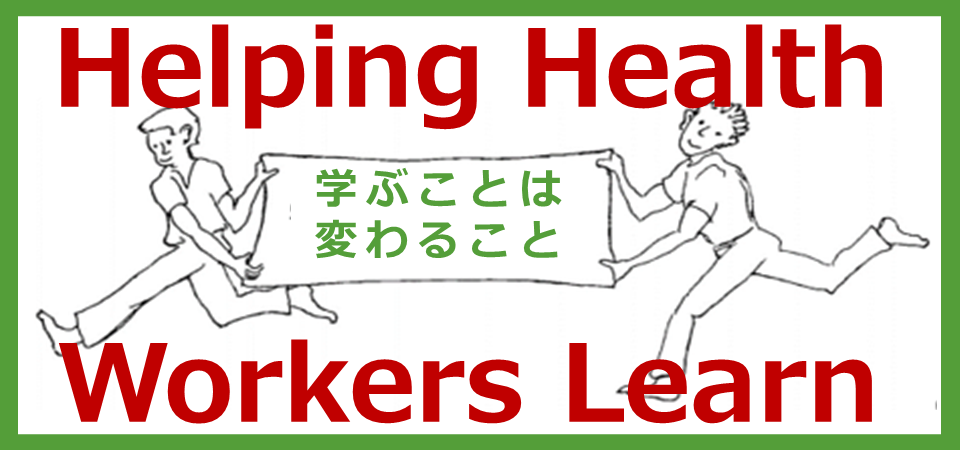Bridges in Public Health
Bridges in Public Health was established in July 16, 2014 towards people’s health (public health). We address research on, human resources development for, and practice of community health / primary health care, and we also bridge them each other.
We aim to realise problem-driven research and evidence-based practice so people anywhere can attain health. For these aims, we help and foster research-minded practitioners and practice-oriented researchers. In particular, we operate health research projects, train / educate human resources for health, and technically assist health-related organisations, such as local health administrations, NGOs, health facilities, and others.
- About us
- Board members
- Founding Prospectus
- Articles of the corporation
Framework
Our vision
We aim to realise problem-driven research and evidence-based practice so people anywhere can attain health. We further look ahead to local and global health equity.
Our mission
We help and foster research-minded practitioners and practice-oriented researchers who work for community health and primary health care.
We are directly working together with health-related professionals and students. Through them, we hope to contribute to people’s health.
Logo
Our organisational logo describes our wish to bridge 3 gaps; the gap between research and practice, the gap between people’s reality and health plans/programmes as well as the health gap.
Three colours represent to think scientifically, to act practically, and to share socially.
団体紹介スライド
銀行口座
講師謝金等、当法人へのお支払いは下記よりお願いいたします。
東京三菱UFJ銀行 石川橋支店
(普通)0055288
シヤ)ブリツジズインパツリツクヘルス
ご寄付、会費は下記よりお願いいたします。
(東京三菱UFJ銀行へご寄付・会費をお送りいただく場合は、
送金後に事務局へご一報下さい。)
ゆうちょ銀行 名古屋石川橋支店(店番〇八九)
(当座)00870-9-126227
シャ)ブリッジズインパブリックヘルス
役員
理事
- 樋口倫代
- Bridges in Public Health
代表理事
- 水元芳
- 中村学園大学 栄養科学部
教授
- 近藤麻理
- 関西医科大学 看護学部
教授
- 坂本真理子
- 愛知医科大学大学院看護学研究科
特命教育教授
- 石本馨
- Bridges in Public Health
事務局長
監事
- 林かぐみ
- アジア保健研修所
職員
職員
事務局
- 樋口倫代
- 代表理事
プロフィール
- 石本馨
- 事務局長
Founding Prospectus
“What is the research for?”, ”Who is the training for?” – Questions concerning health-related research and education are the original point for establishment of our organisation. We seek opportunities to keep asking ourselves these questions, to work for solutions, even if achievements might be small, and to send messages while developing network; this is the organisational principle.
There have been great achievements in research on basic medicine/health science; however, achievements in basic research alone cannot contribute to people’s heath (public health). Increasing such awareness makes people to recognise the importance of interdisciplinary, applied research; not only on “what influence on people’s health” but also on “how people can attain health”. In addition, some become to advocate the importance of linking the gap between research and real society. These movements might be one of the solutions to “what is the research for?” and ”who is the training for?”
A two-way approach is needed to bridge research and practice; evidence-based practice and problem-driven research. Human resources are also important to realise the approach, which also requires working with the research side and the practice side. Human resources development for both research-minded practitioners and practice-oriented researchers will be necessary. Only academics or only people practicing in the filed may not be able to deal with such issues.
We establish an incorporated association named Bridges in Public Health to hope to bridge the gap between research and practice. By bridging them, we further aim to address the gap between people’s reality and health plans/programmes as well as the health gap. We therefore use “bridges” in the plural form. We are aware that there should be scepticism and criticism to such ambitions; how such a small organisation can tackle with such difficult problems. We believe that it is a possible challenge now when diverse forms of services and activities develop social systems, coexisting, cooperating and complementing each other in societies. We are small and non-profit and have no authorised status. This makes us not to be pushed around by pressures such as “trend”, “priority” or “globalisation”. We are addressing issues honestly and sincerely together with like-minded colleagues.


